Welcome to my blog, Daphne A. Brook's Grace, and what my friend wanted me to write about
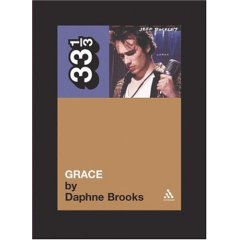
Ah, my first post. Welcome to, audiologo, my blog! I've been debating whether or not to start one for a while. But then I found myself posting rather long replies to other people's blogs and wanting to get all tangential and that was a sign. So here I am. We'll see how it goes. I imagine that like many others I will see if I make it to 365 days.
I have just finished reading Grace, Daphne Brook's study of Jeff Buckley's classic album Grace,
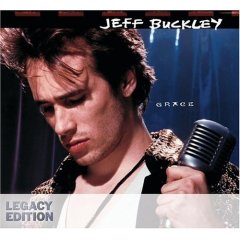
While at the Experience Music Project's 2005 Pop Conference in Seattle I heard that Continuum was just about to publish Brooks work as part of its 33 1/3 popular music series, and my interest was peaked for a few reasons. Mainly because of Brooks' sensitivity and intelligence as a thinker, her charming yet incisive honesty, as well as her lyrical way with the academic-speak. Her prose often communicates play and pleasure not always evident among theorists. In much of the work

Buckley benefits from Brooks work in this mode because along with being versed in the Robert Plant-Led Zeppelin school of vocalizing, guitar-vocal interplay, cock-rock postering and emo-man/boy emotional-cul-de-sac-prone wanderings, Brooks has also done serious work piecing together Buckley's relationship to gender and race (she cites his book collection which included "Beat and African-American poetry, sociology, folklore, Greek classics, political theory, cultural ethnographies, and historical biographies...[and] some of the most culturally and theoretically engaging works on gender and culture." [115]). This leads to some of Brook's most provocative discussion, wherein she highlights the ways in which Buckley was carving out a new geneological path for himself within rock music, one which drew not just on the canonized legacy traced by the Rolling Stones, Led Zeppelin and other white blues-based bands who point to Robert Johnson give a quick glance to Tina Turner (if at all, even though Merry Clayton's spine-tingling notes on "Gimme Shelter" is what gives that song its driving urgency, for more on Clayton see this Funky16Corners Blog entry) and keep on steppin'. Brooks gives considerable time to Buckley's female musical influences, including Billie Holiday, Mahalia Jackson, and in particular Judy Garland, Edith Piaf and Nina Simone. About Buckley's relationship to the last of these masterful vocal interpreters Brooks says:
From his scorching, bluesy rendtion of "Be Your Husband," to his chiming, experimental reworking of "That's All I Ask" with a full band, Buckley was a fiend for covering Nina Simone standards throughout his career. During the Grace sessions, he used the café studio setup to perform a heart-breaking cover of Simon'e "The Other Woman." As a white male rock artist unafraid to embrace the musical genius and influence of a black female musician, Buckley seized upon inhabiting Simone's parable of an elegant woman living in the shadows of a triangulated relationship. In his studio performance of "The Other Woman," Buckley shows he is more than capable of gently rendering in gorgeous, almost rapturous quietude the delicate beauty of this song. At the same time, he absolutely nails Simone's uniquely remarkable and sinuous vocal escalation. [123]And then there is this
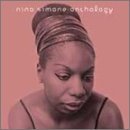
What's different about Buckley though was a matter of both strategy and context. He made use of covering Simone's material in particular in order to excavate legacies of eccentricity (such as Simone's) that have long gone underappreciated in relation to rock. All the more gutsy that he staged this recovery in the midst of early-to-mid-90s white riot rock revolution. More still, even beyond his literal Simone covers, Buckley wisely invoked methods of excess in vocalizing to make singing and the song itself matter in powerful ways in "alternative" rock culture. This is nowhere more apparent than on his Grace cover of "Lilac Wine," a song made popular by Simone in the late 60s. [125]That made me go back and listen to Buckley's "Lilac Wine" (and "click," I totally heard the N.S. inflections) and initiated a thirst for as much Nina Simone as I could get my hands on. For me, this was quite an enjoyable and inspiring read.
But what about women seeking to push gender boundaries in vocal delivery? I wondered what the model is for women. The opposite? A woman who allows herself an unbridled assertion of macho posturing and inflection. Is this truly liberating? Arguably it was for Joan Jett (but Lita Ford?) and continues to be so for The Donnas, although a lot of that posturing intimates an sexual aggressor posture: I can top you before you can top me. But I wondered about women who are attempting to traverse a parallel emotional-spiritual sensual musical path. Why don't women get the same points as men for being able to access complex emotions and exhibit a complicated vulnerability. Is it really easier for Kate Bush to write and sing "This Woman's Work" for example, than it is for Maxwell to cover it in a trembling falsetto? Or does the parallel path call for the inverse--an intensity that is restrained and spare, with the instensity contained in the few notes used where even the recorded breath matters (which is similar to Buckley's rendition of "Hallelujah"). I was sifting through the women that were mining this terrain simultaneously as instrumentalists and vocalists and I came up with Me'Shell NdegéOcello around the time of Bitter. The album is marked by spare arrangements and instrumentation, but not a lot of bass as though the weight of the instrument would break the fragile structure of many of the songs. Of course Pastorius proved a bass can have a feathery touch, nevertheless the absence of the bass focuses the listener on the depths of NdegéOcello's lower register isolating her voice and adding to the level of intimacy in these songs that are all about that struggle. On the flip side with bigger instrumentation is Björk emoting "All Is Full of Love" on Homogenic. Again with the inclusion of intimate breath in the recording. However, Björk's instrumentation and arrangements are all behind the scenes. Björk holds the typically feminized space of the vocalist and her power is localized in her voice. For Björk as well as Simone, Betty Carter and other female vocalists who not only were unique interpreters but also wrote music, headed up their own bands, and created their own arrangements, having the voice as a primary instrument elicited the bias many, including other musicians, have against viewing vocalists as legitimate musicians instead of as band eye-candy (male or female).
********************
So, I've been watching the whole Buffy the Vampire Slayer series on DVD, along with much of the commentary. Why, you might wonder? Because I've been looking at race and teen narratives in visual media culture. Anyway, I'm watching "Wild at Heart" (Season 4, Episode 6, airdate November 9, 1999) when Oz (Seth Green), the young eccentric stoic who is Willow's boyfriend and a werewolf realizes that he's got to leave Sunnydale to get his dark werewolf side under control, especially since it led him to betray Willow with a female werewolf. Ah, young love. Anyway, I'm listening to the commentary which is being done by writers/producers Joss Whedon and Marti Noxon, and actor Seth Green (Oz aka Daniel Osbourne). A young Asian American man who is obviously an extra appears on the screen (pictured below right, second from the left). One after the other Green and then Whedon announce, "there's Asian Dan!" and then with seeming affection "oh yeah, Asian Dan!" Noxon chimes in and short jocular conversation ensues about how long "Asian Dan" was an extra on the show, including speculation how often he appeared on the show, and if he was ever the butt of any jokes (he wasn't). (Listen to their exchange in my May 2, 2006 audiopost.) Then they move on to the next part of the commentary. I mention this to my friend W. who says, "you have to write about that!" But I have to say I don't know what I would write.
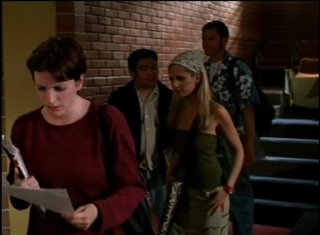
Sadly, I'm not surprised that they're completely unaware of how offensive that labeling might be. Knowing Joss Whedon's sensitivity on the subject it's highly unlikely anyone would be referred to as "gay (fill-in-the-name-of-the-extra)" (Whedon had writer Drew Z. Greenberg revise a scene in Season 6 where two young men were punished for loutish behavior towards witches Willow and her friend Amy by being made to make out with each other; Whedon didn't want the idea that being gay was a punishment. Instead the young women turned them into caged, dancing go-go boys). Presumably there was a "white Dan" or "Caucasian Dan" from whom "Asian Dan" was meant to be differentiated, but I never heard him mentioned in any of the commentaries. Nor did I hear mention of a "Black Dan" or "Latino Dan".
Comedian/actor Margaret Cho commented in a recent Venus Magazine interview that she couldn't understand why it was still OK for people to make jokes about Asians. I think the reasons for this are complicated, and have to do with facets of the culturally located differential resistance strategies that have been deployed at different points around Asian American visibility and citizen rights, as well as issues of fetishization within dominant culture and in some non-Asian American marginalized cultures as well that then feed into dominant culture hegemony. But I know my limitations, so that's all I'm saying W. If they haven't already, maybe someone will write about intersections between Buffy commentary, Abercrombie & Fitch t-shirts, a seemingly politically aware Asian American graffiti artists borrowing from stereotypical anti-Asian imagery to produce Adidas sneaker designs, and how European American entertainment writers, while interviewing Korean American Margaret Cho, comfortably initiate jokes at her expense about Cho being mistaken for Chinese American celebrities actress Lucy Liu and National Geographic journalist Lisa Ling. At least I hope so. (Thanks to j's theater for the heads up on the Adidas sneaker story.)
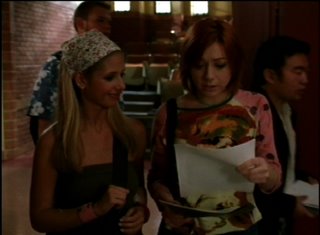
Here's another final shot of Extra Dan (far right) leaving the frame behind Sarah Michelle Gellar and Alyson Hannigan in this scene. I can't find an credit listing for Mr. Dan, does anyone know his full name?
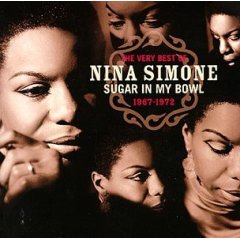

0 Comments:
Post a Comment
<< Home